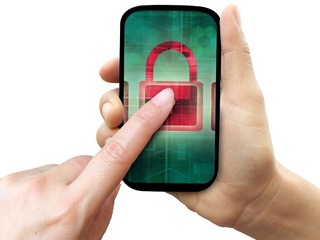The FDA outlines draft guidance on AI for medical devices
The agency also published draft guidance on the use of AI in drug development
Read more...
Maybe I watch too much cable news (though I have really started to wean myself off of that because, ugh!) but I have very, very little faith in this current government, and this Congress in particular, to actually get anything done. Especially not anything that would benefit someone who wasn't already a gazillionaire. (Tax cuts for the richest companies ever? YAY! Minimum wage hike for some of the poorest people in the country? BOO!)
And, yet, sometimes I am pleasantly surprised. Not often, but it does happen. Take, for instance, the recent bill, passed by the Senate earlier this month, which would allow cell phone users to unlock their phones, and bring them to a different carrier. It’s such a good idea, and so beneficial to the consumer, that I figured Congress would find some way to screw it up. Like attaching an amendment to bomb Russia or something.
But no, they didn't. They passed it! Congress actually did something right! Now all that has to be done is for President Obama to sign the "Unlocking Consumer Choice and Wireless Competition Act" into law. Will he do so? Given than the President even petitioned the FCC to end the practice of blocking phones from being taken from carrier to carrier, all signs point to yes.
The bill, which was introduced by Vermont Senator Patrick Leahy, passed the Senate through a unanimous consent agreement in mid-July. It seemed likely that the House of Representatives would pass at least some version of this legislation, since it had passed a similar bill earlier this year. That bill, however, came under some scrutiny because it prohibited the practice of bulk unlocking of devices so they could be resold.
And it's not only the government that wants this: more than 114,000 people signed a petition on the White House website to oppose their cell phones being locked.
Once signed, the law will put back in place an exemption to the Digital Millennium Copyright Act (DMCA) that had existed from 2006 until 2012, which allowed consumers to take their phones, after their contracts expired, and have them unlocked by a different carrier.
The exemption is necessary because the DMCA, which was passed in 1998, stated that cell phone software was protected under copyright law, and that unlocking a phone would be a violation.
Leahy has said that he is aware that the DMCA law still exists, and says that the Senate bill takes copyright protection into account by allowing consumers unlock their phone, while also protecting the rights of the technology companies to protect the rights to their software.
This bill will be signed into law, your life will be made easier and, though it is rare, you can actually be proud of your government for actually getting something done.
(Image source: idownloadblog.com/unlock)
The agency also published draft guidance on the use of AI in drug development
Read more...The biggest focus areas for AI investing are healthcare and biotech
Read more...It will complete and submit forms, and integrate with state benefit systems
Read more...